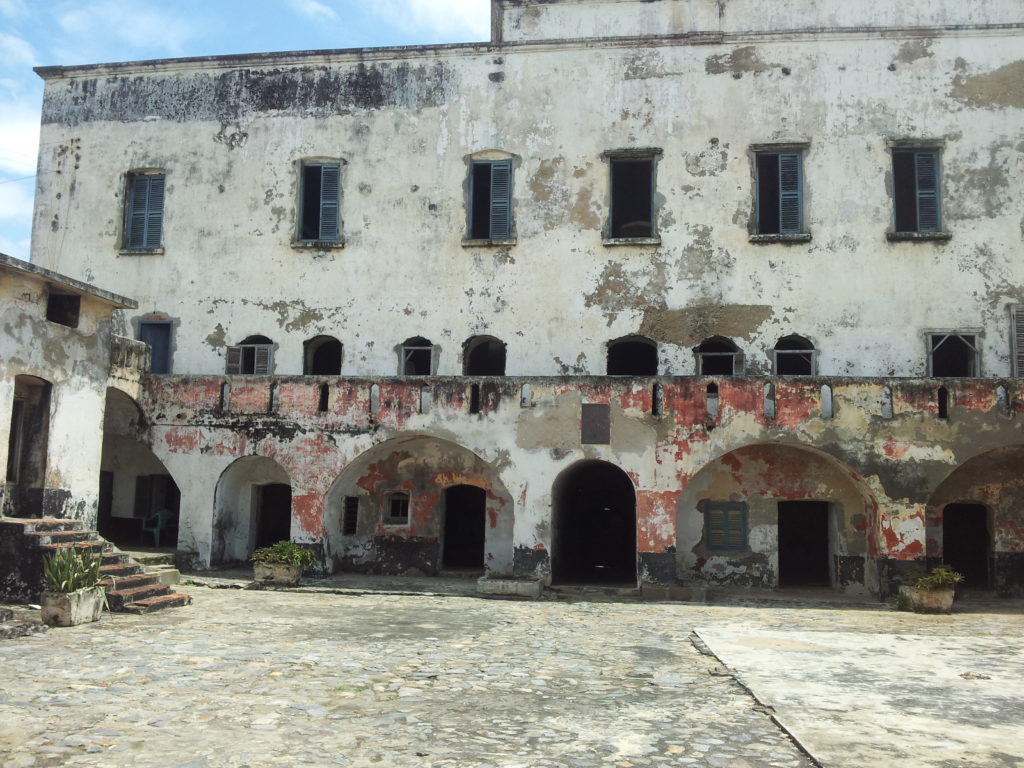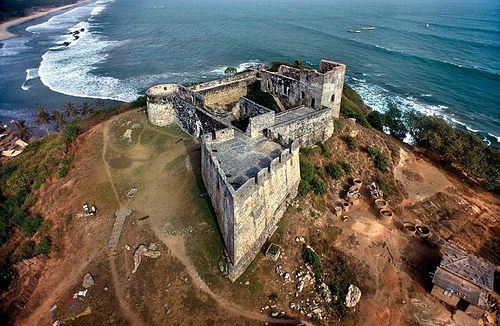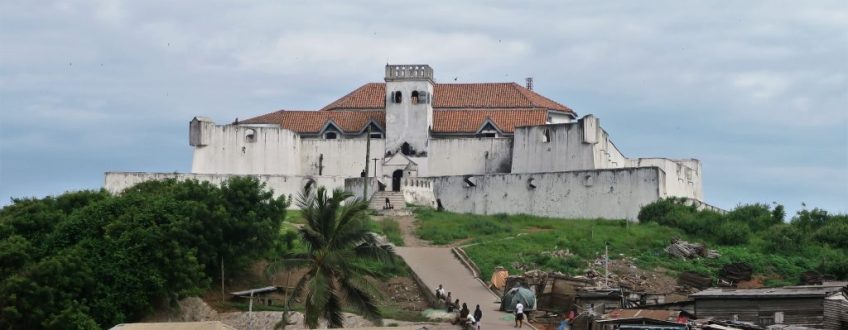The Forts in Ghana are part of the country’s treasure. They are a legacy of Ghana’s historic past, and worth much to modern Ghana, Africa, and the world at large.
Here are the stories behind 3 major forts in Ghana built in the Central Region of the then Gold Coast.
Forts in Ghana: Fort William – Anomabu

Anomabu became the focus of intense European trade rivalry in the 17th and 18th centuries, partly because of its easy access to a rich hinterland and the local Anomabu were themselves powerful and astute traders. From the middle of the 17th century, European companies vied with each other in the quest for rights to establish and maintain a trading post at Anomabu.
The earliest lodge was built in 1640 by the Dutch using earthwork, changed hands four times – from the Dutch to Swedes, then to the Danes, back to the Dutch and finally to the English.
Forts in Ghana: Fort Amsterdam (Cormantin) – Abandze

History has it that, in 1631, a renegade employee of the Dutch West Indian Company called Arent Groote, acting on behalf of the English Company of Adventurers Trading to Guynney and Binney, signed an agreement with the Chief of Cormantin by which a hill site near the village was ceded to the English company.
That year, the company built a lodge. Later, it was destroyed by fire and the company converted the lodge into a fort in 1638. In 1661, ownership of the fort was transferred to the Royal African Company and it became the headquarters of the English possessions on the Gold Coast.
In 1665, the Dutch Admiral De Ruyter captured Fort Cormantin in retaliation for the capture of several Dutch forts by English Admiral Holmes in 1664. The Dutch reconstructed the fort and renamed it “Fort Amsterdam”. The English transferred their headquarters to Cape Coast Castle.
Forts in Ghana: Fort St. Jago (Coenraadsburg) – Elmina

In 1503, according to historical narration by the Portuguese Diego de Alvarenga, a Portuguese missionary converted and baptized the paramount chief of the Efutu Kingdom on the Mina coast together with 300 of his subjects. The chief permitted the Portuguese to build a church on the hill located opposite the Castle St. Jorge. The site was dedicated to the Portuguese saint, Jago.
In 1637, the Dutch employed the hill as a gun-position to bombard and take Elmina Castle from the Portuguese. The following year, the Dutch, seeking to protect the castle from the landward side, built on St. Jago hill, 33 meters above sea level, a redoubt or fortified quadrilateral earthwork with a tower and gate and a single-storied building within a courtyard all surrounded by an embankment. In the 1660’s, the Dutch used local sandstone rock to build a permanent fort to replace the earthen fortification, which was then destroyed.
The stone fort, named Coenraadsburg, is unique and impressive as “the oldest purely military architecture of the Gold Coast”. It had no commercial warehouses of any kind and its military fortifications were based on the design of baroque military architecture.
READ ALSO: All you need to know about Elmina Castle





